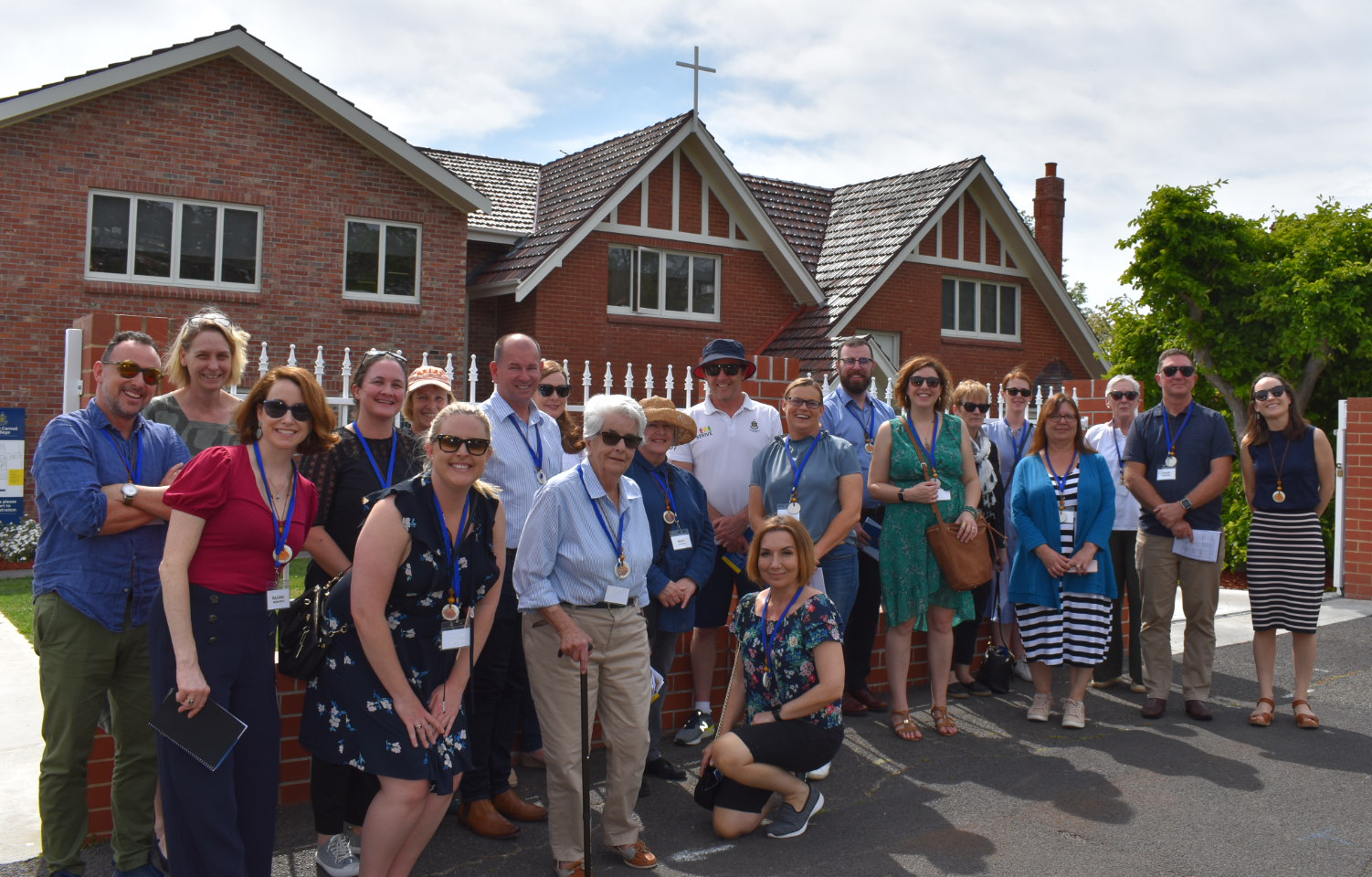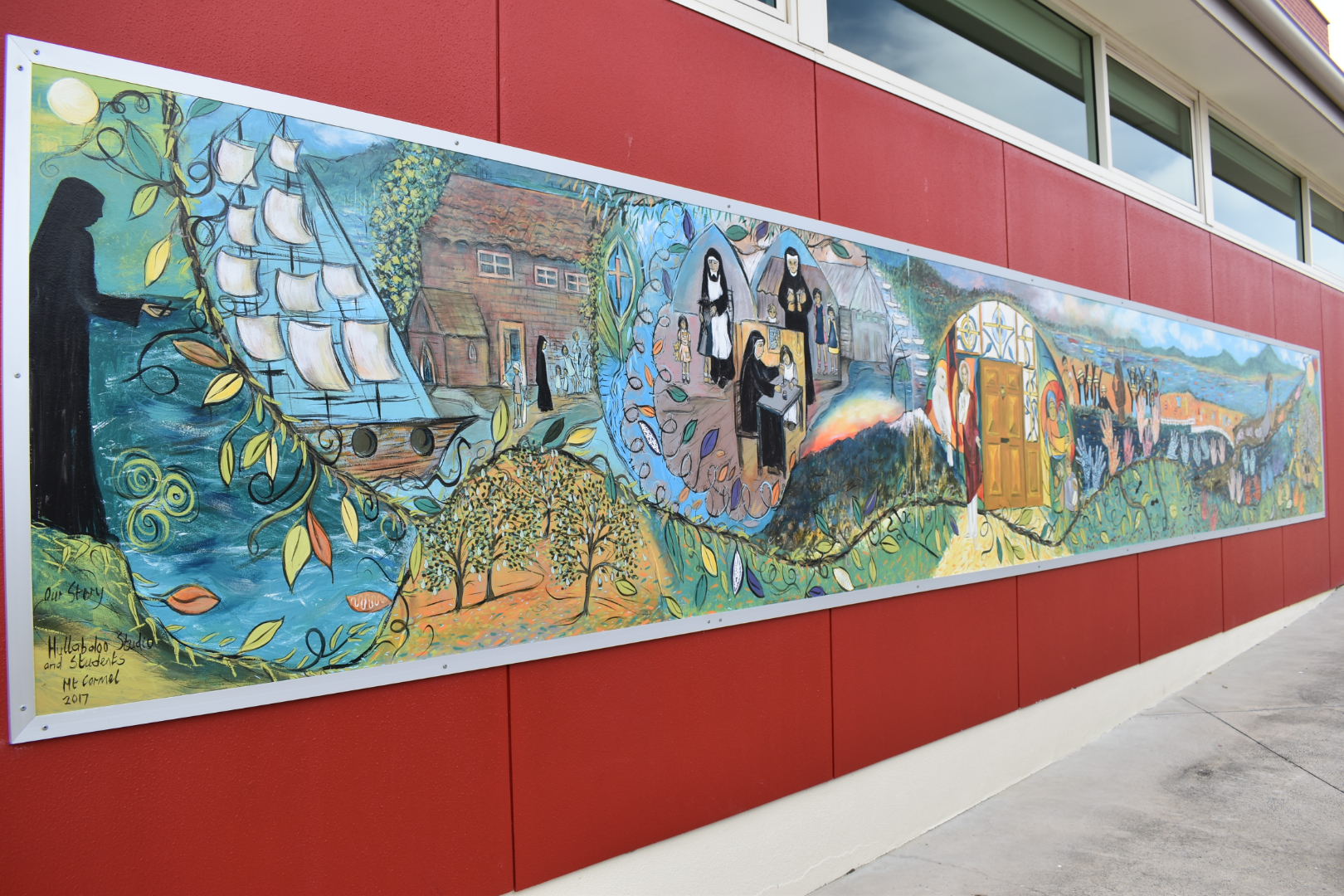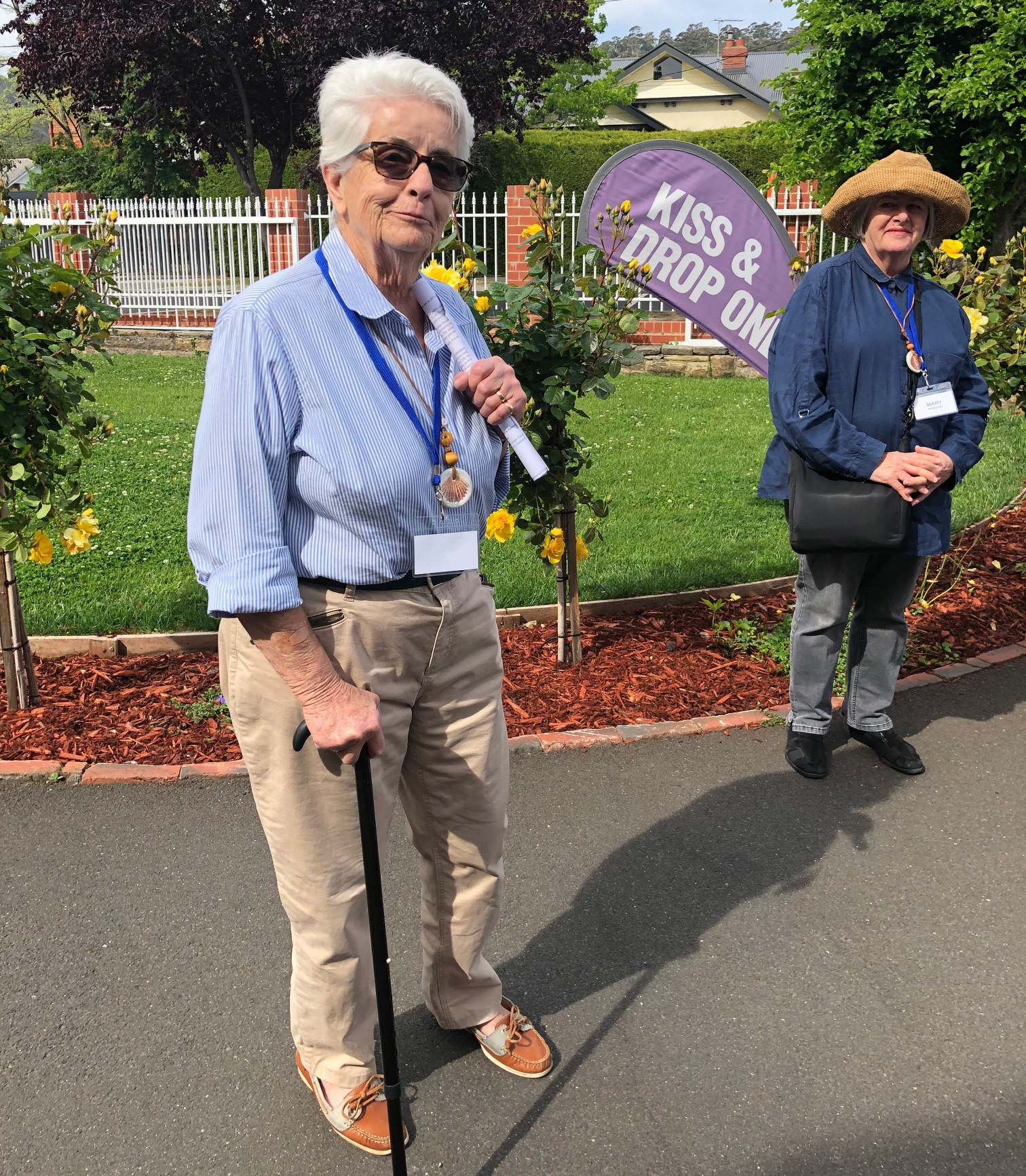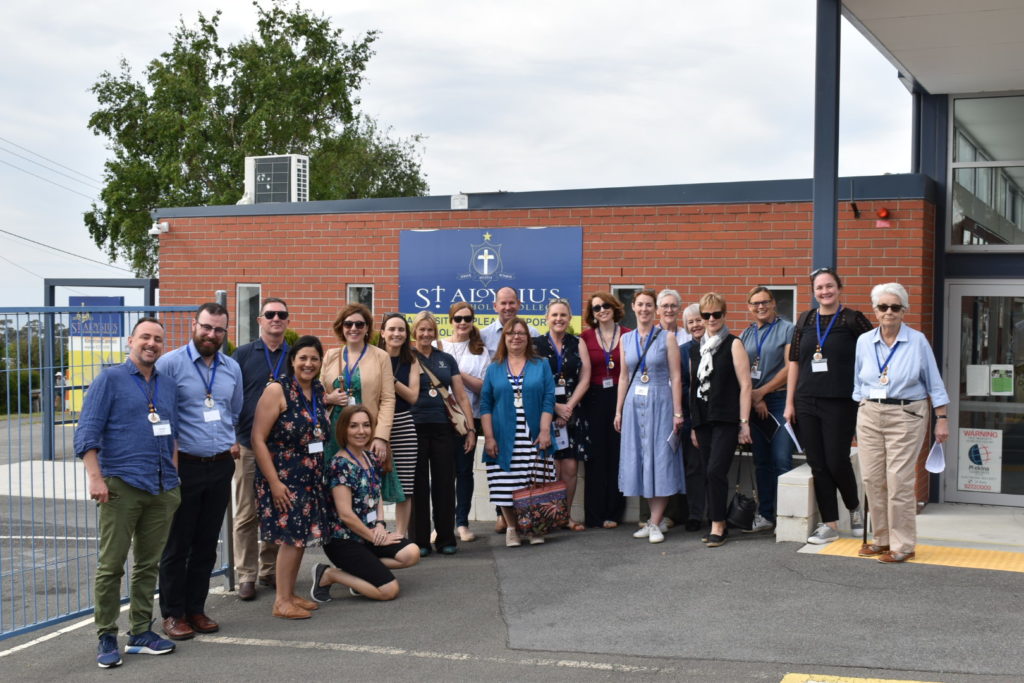By Ms Pip McIlroy, Health Care Ethics & Formation Coordinator,
St Vincent’s Health Australia
Thursday 31 October 2019
Standing on Macquarie Wharf on a warm Hobart day with only a slight breeze in the air, it’s not hard to imagine the small two-mast sailing ship, the ‘Louisa’ sitting, windless in the Derwent River. On it were the first three sisters, having arrived in Hobart waters, but not yet able to reach the shore.
…When have I found myself a bit stuck, on the cusp of beginning something new, keen to reach out to a new place or person but needing help to get started?
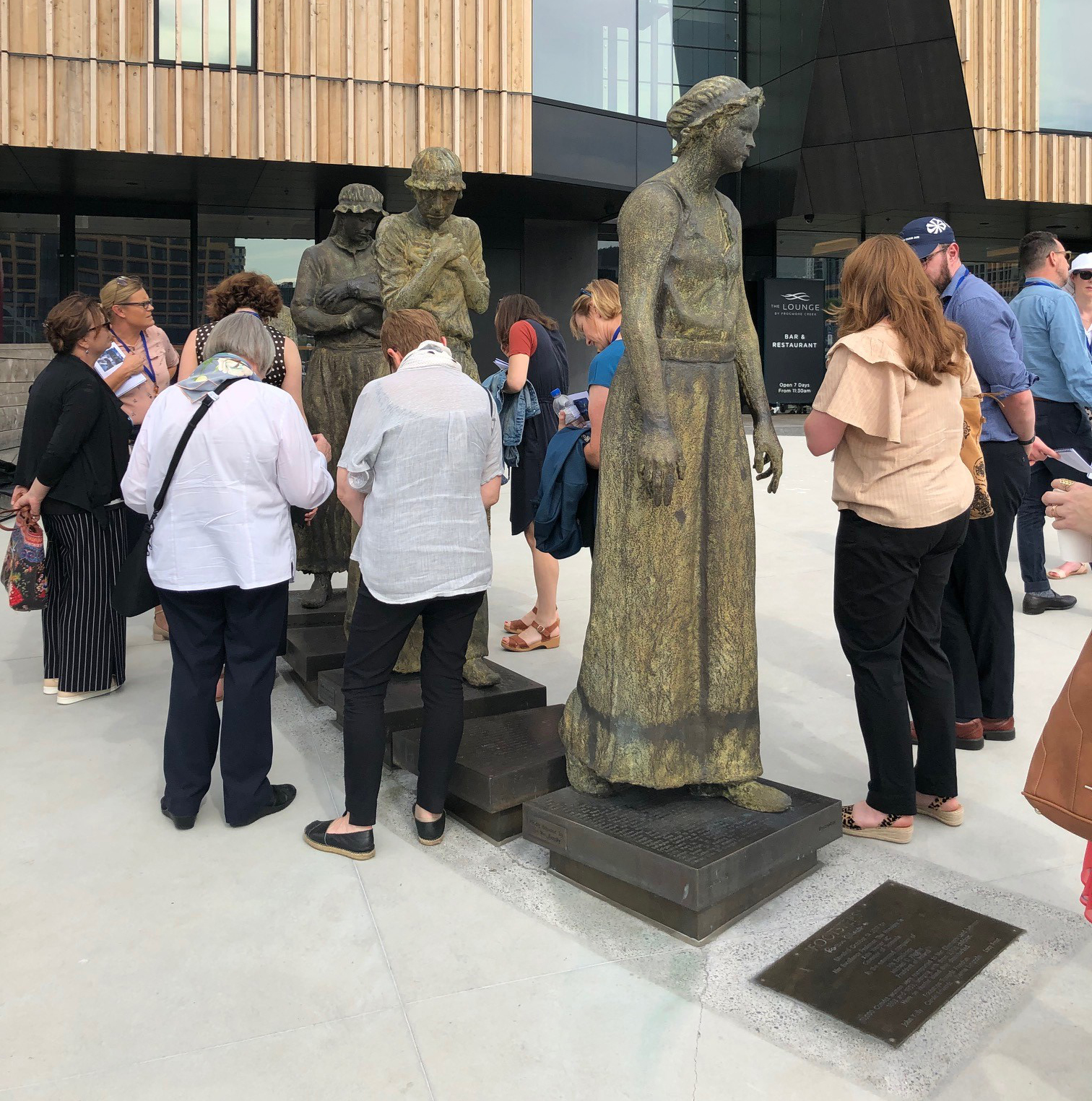
Although the physical scene would have been starkly different in 1847, my imagination wanders to the experience of the three pioneering sisters. Aged about 54, 47 and 38, these women sailed from Sydney to Hobart with just twenty pounds and a few of their personal possessions. Already in a land foreign to their Irish home, this journey to Tasmania was to even further unknowns. What courage and trust it must have taken to go towards great need in a completely new place.
…how am I challenged by the Sisters’ freedom from physical possessions to practice what St Ignatius calls detachment, “making use of those things that help to bring us closer to God and leaving aside those things that don’t.”
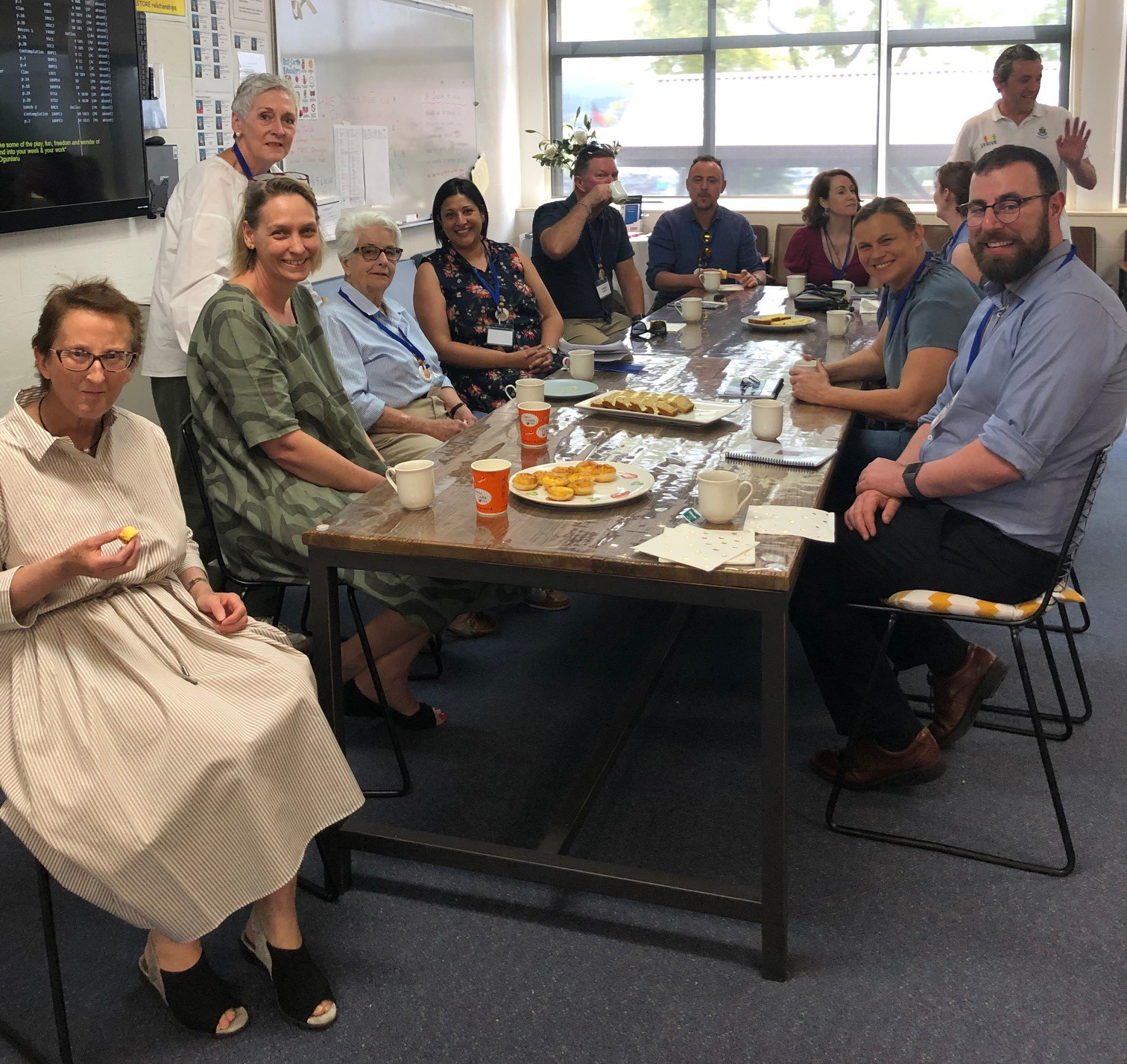
Friday 1 November 2019
At the notorious Cascade’s Female Factory in South Hobart, we are lucky to experience history brought to life by actors Judith and Chris. I am taken aback by the tiny scale of the solitary confinement cells and the stories of convict women who had to leave their children in England or had them taken away once in Australia.
…Sometimes the suffering that others have endured is unfathomable. Compassion means to ‘suffer with’. How might I be being invited to imagine what life might be like for people who find themselves cast aside by society and to walk alongside them?
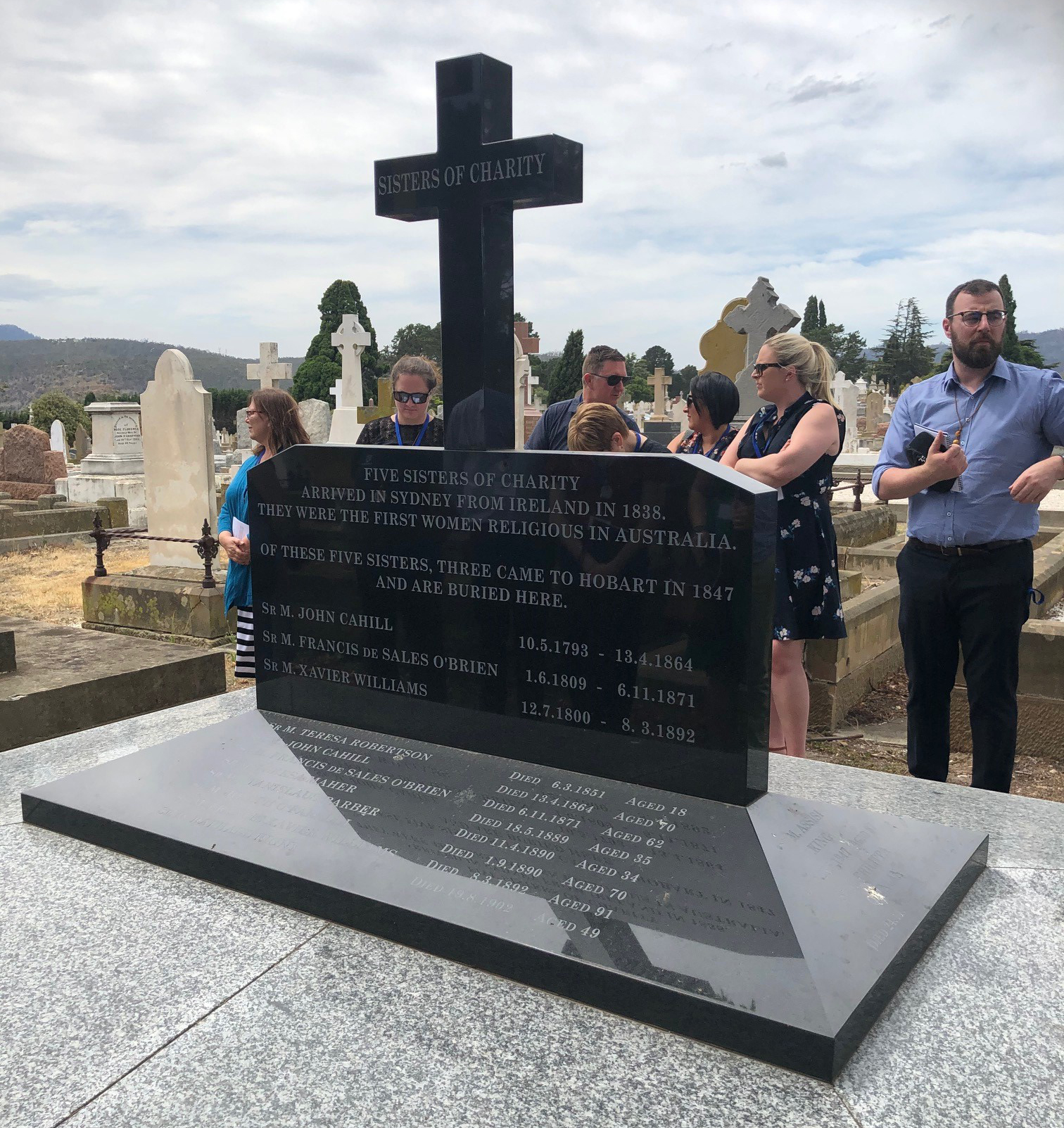
I’m struck by what could have been the significant emotional toll of the sisters’ first endeavours in Hobart; visiting and instructing the female convicts and their children while imprisoned and also children in the orphanage. Sr. Maria Wheeler shares with us that the sisters passed messages between the female factory and the orphanage, this sometimes being the only mode of communication between a mother and her child. How difficult it must have been to see up close the extremely harsh reality of the female prisoners’ lives. Yet the sisters’ faith and commitment to serving and caring for vulnerable people in the Hobart community continued to be a driving force for their ministries.
…What are my driving forces that will sustain me even in the ups and downs of life and work?
